10 Most Misunderstood Film Characters
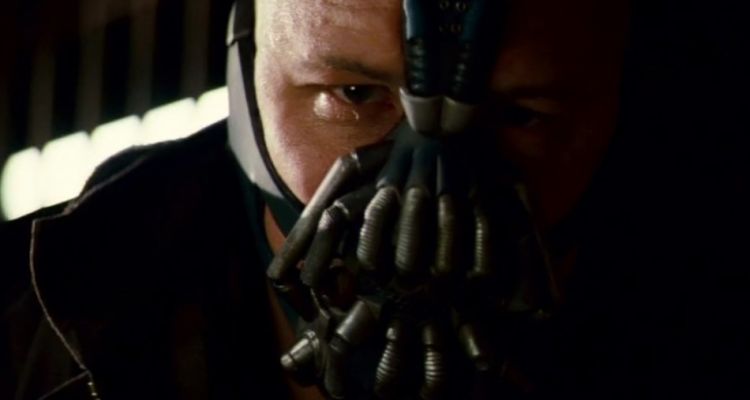
Chilean. Living in Buenos Aires. Currently on book #4. Melomaniac,…
Have you ever noticed that some of the most resounding characters in film, either heroes or villains, usually behave in ways that absolutely baffle you? They are a dichotomy, a wonderful multi-layered creation, taking our breaths away with their grays (a refreshing contrast to the black/white of some of the more forgettable characters in films). Whenever I run across a character like this, my celluloid-loving heart skips a beat. And without further ado, here go my top ten misunderstood characters in film:
10. Eve Harrington (All About Eve, 1950)
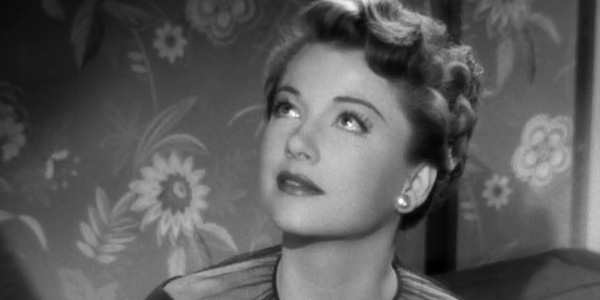
When the beautiful Eve Harrington (Anne Baxter) walks up to Karen Richards in her faded trenchcoat, her mouth pouty and a doleful look in her eye, just begging to be introduced to Margo Channing (Bette Davis), we squirm and somehow know she’s up to no good. Can anyone be that saccharine? But as the film progresses, we start to believe that perhaps this Eve is as helpful as she seems, slobbering all over Bette Davis like she does. Though much hated by the world’s cinephiles, the beautiful Eve Harrington cannot really be blamed for being so machiavellian. After all, she did come from an impoverished family and had very little going for her (I can just picture her rocking in a wicker chair, contemplating the Milwaukee sunset, dreaming of the glittery things of life. Now doesn’t that break your heart?)
Eve, without a resourceful family to back her, is forced to make her own way in life. And she has ambition, oh yes, she does. She goes after her small-town boss and begins an affair. The family finds out, gives her 500 dollars to leave town and as we all know, hell hath no fury like a woman scorned. Who knows what rejection (and a mere 500 dollars) did to her country-girl spirit? She ends up in New York and this is where the real story begins.
Such contradictory feelings does Eve produce in the viewer, that when she blatantly throws herself on Margo’s boyfriend, Bill (the fantastic and solid Gary Merrill), instead of mentally punching the little, scheming rat, we think it over, because we can still see the lost little country-girl somewhere in Baxter’s eyes. Of course, Eve will learn that the glamour and glitz of the world do not signify happiness and ultimately, her victory will ring hollow. It is Anne Baxter’s marvelous performance that makes Eve come off more as a tragic casualty of greed and ambition than a real villain. The film would go on to win six Academy Awards (including Best Picture of 1950) out of fourteen nominations – something that only Titanic has been able to achieve since.
9. Sil (Species, 1995)
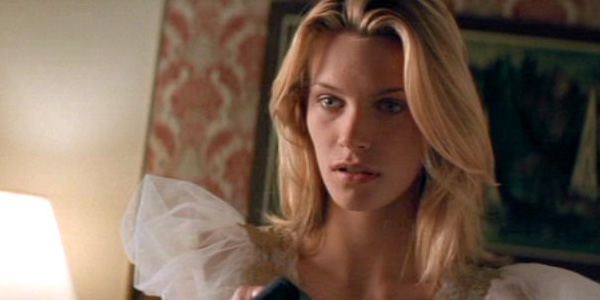
Didn’t Darwin say a thing or two about survival of the fittest? The origin of the species? Are we not mammals, controlled to a certain degree by biological and chemical urges we fail to notice and barely understand? Who can cast the first stone at Sil, then? Sil, a goddess of a woman (Natasha Henstridge) who is bred in captivity and raised in a transparent bubble, smack in the middle of a secret government compound. There is no privacy for Sil, even her sleep is monitored. Furthermore, she is relentlessly prodded, poked and experimented on. No wonder the poor girl escapes and gives free reign to her base impulse to mate and propagate her species. Even the team sent to track her down gets it, so why shouldn’t we?
Species was released in 1995 to a rather cool reception. However, it is one of those films that grows on you in time: the quirkiness of Forest Whitaker as the friendly psychic, the mysterious Michael Madsen, all sex appeal and bravado; the fantastic Ben Kingsley working hard to make himself unlikable and Marg Helgenberger as the one person who truly cares for Sil’s welfare. By the end of the film we are torn between the survival of the Earth and the survival of Sil.
8) Wren (Smithereens, 1982)
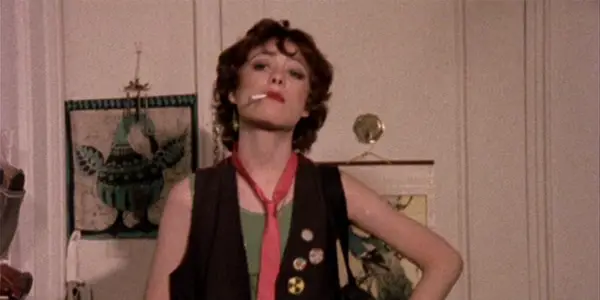
Smithereens is an ode to the blossoming NYC punk subculture of the 80’s. Susan Siedelman (Desperately Seeking Susan (1985), Sex and the City, Hot Flashes (2013)) crafts her Opera Prima with the visual sensitivity of a poet. Though the film is steeped in the reality of the Punk Underground, more than a few sets were built larger than ‘punk’ life, to give the film a fairy-tale quality. As an added bonus, Smithereens is ripe with that special energy that only a fresh-out-of-film-school moviemaker on a meager budget can conjure up. The film became something of cult classic and boasts being the first Independent American movie to enter the Cannes film competition of 1982.
Enter Wren, a twenty-something runaway who is determined to make it in the NYC Punk Rock Scene, despite having no brains, nor talent. When she arrives in New York, she finds that the subculture has moved largely to the West Coast, so she has the brilliant idea of hanging out in one of the scene’s remaining night clubs, hoping to become a Punk band groupie and hitch a ride to the West Coast. More than a fair share of critics have argued that Wren is nothing but a talentless parasitic hack, who is content to mooch off whomever she can. Indeed, Wren uses people for support in any way available to her and she doesn’t give a second thought about hurting anyone’s feelings. However unredeemable Wren might appear, she does hold the audience’s attention, even fascinates them with her child-like dreams and quirky innocence. You see, Wren doesn’t do wrong on purpose, more often than not, her big head and survival instincts get the best of her. At the end of the day, what makes her a tragic anti-heroine is the fact that she is also used and manipulated, to a length more extreme and pitiful than whatever she might have done, so we forgive her. Notable in the film is the participation of Richard Hell, pioneer and Lord of Punk music and fashion. Susan Berman plays a feisty Wren with so much charm that we can’t help but watch every move of hers, no matter how obnoxious she might seem.
7. John Preston (Equilibrium, 2002)

Why this film got bad reviews, I will never for the life of me understand. A melting pot of such sci-fi classics as Huxley’s ‘A Brave New World’, Bradbury’s ‘Fahrenheit 451’ and Orwell’s ‘1984‘, Equilibrium is a stylish midpoint between mesmerizing Gun Kata action scenes and a thoughtful reflection on Totalitarian Systems, free will and the human psyche. John Preston (Christian Bale) is a top-level enforcer of the New World Order, a ‘Cleric’, spending his days persecuting those who would commit crimes against the drug-induced numbness everyone is forced to abide in (thanks to a drug that shuts down your emotions). But one day John discovers Beethoven’s 9th (music: a huge federal offense punishable by death) and the rest is cinematic history.
Preston is hard to make out. He’s a cruel enforcer who sticks to the rules (so much so that he kills his partner because of poetry; I am not kidding) and when he stops taking his Prozium, it’s not even a planned thing, he inadvertently ‘skips a dose’, thus opening the floodgates of emotion. It’s not that Preston wants to be the one to try toppling the Regime; it’s more like he gets suckered into it. So, while many see Preston as a brain-washed-brute-turned-hero (inadvertently so), I tend to regard him as a man touched by grace. For what hero started out desiring to be one? Most heroes don’t even know they’re on a heroic path, it is more of a thing that “happens to them”. The scene with Preston and the dog is especially touching.
6. Prince Nuada (Hell Boy 2, The Golden Army)
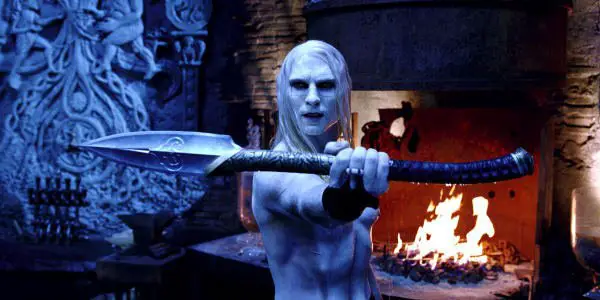
Who can resist Luke Goss in Elfish attire? At least I think he has some Elf going on in there with that deathly white skin, Nordic blond hair and impossibly limber physique. When you’re Prince of the underworld and all your supernatural brothers and sisters are being pushed into the smaller fractions of the Earth, when you see human beings annihilating the very planet that sustains you, wreaking havoc on the environment, allowing greed to destroy any long-term sustainability, wouldn’t you want to take over and change the status quo?
A world where Elves rule, ever at peace with and preserving nature? A more spiritual world, a world of magic and light? Now that sounds appealing. Pity Nuada went about it the wrong way, using a mechanical army and a rather big sword. Had he campaigned with smiles and handshakes, he would have certainly gotten my vote.
Luke Goss is memorable in the guise of Prince Nuada, all strength, aplomb and other-worldly charm. His final monologue is the cherry on the icing. He certainly gives Hell Boy a piece of his mind and a thing or two to think about. A rare, thoughtful performance in an action-packed blockbuster movie, made interesting by the auteur’s touch of Guillermo Del Toro.
5. Christopher Leningen (The Naked Jungle, 1954)
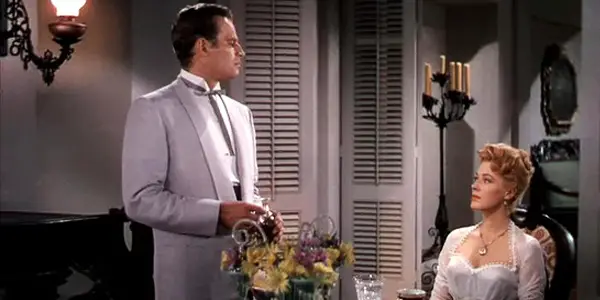
Yes, everyone, it’s the man who parted the Red Sea, who helped the Son of God carry the cross, who got everyone saved from certain earthquakey death and who did his best to survive some very anti-social apes. He’s done it all and seen it all, but as Christopher Leningen, he’s pretty much a sensitive, tormented, mystery of a man. Meet Mr. Leningen, played by the one and only Charlton Heston, a plantation owner in Brazil, who marries mail-order bride, Joanna. Problem is, the plantation and its toils are all Leningen has ever known, so he’s pretty much still a virgin (I know right? This is Charlton Heston we’re talking about!) and he was hoping Joanna was one as well. But she’s a widow, so good luck with that.
Leningen is such a bonafide jerk during the first half of this film, with his prim and proper ways, his judgmental attitude when it comes to sex and his macho bravado, that we hope Joanna slaps his butt (which she does at one point). But the Marabunta ants quickly arrive, threatening to eat everything and everyone and Leningen’s resolve is put to the test. Beating the Marabunta is such a monumental task that we being to sympathize: we figure the poor fellow probably had no youth or childhood -being in charge of a huge plantation and all- so we forgive him all his faults. Even the fact that he gets all weird when it comes to sex; because you know, flesh-eating ants. Also, he falls in love with our girl Joanna (brilliantly played by Eleanor Parker), so the redemption is 100% complete.
4. Bane (The Dark Knight Rises, 2012)
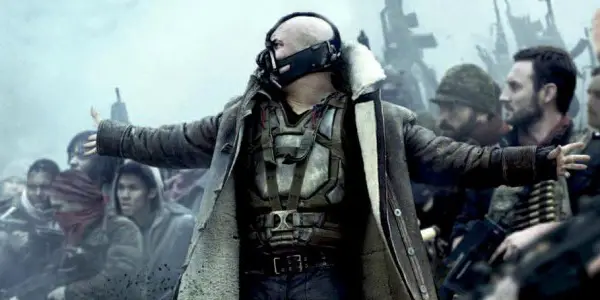
Bane’s cinematic history may differ from the literary DC universe, but one thing remains clear. If Bane were standing outside the prison of your hometown, delivering his masterful speech at the gates, would you fear or admire him? Bane’s tale is one of struggle from a very early age. Imprisoned as a child, in order to serve his father’s sentence, violence and brute strength was the only thing he ever knew. Then, as Talia tells us herself in the film The Dark Knight Rises, Bane meets her, takes her under his wing and acts as her protector. It is he who becomes the catalyst she needs to escape prison. Could Bane have been playing the role of the father and mother he never had?
While Bane’s violence is certainly undoubted, we can safely say that much of what he did in the film, he did out of love for Talia. Surely he wasn’t going to leave her alone to take on such a grand enterprise as fulfilling Ra’s al Ghul’s dreams of new world order. And really, what he says at the Gotham Stadium and at the gates of Blackgate prison makes perfect sense. Why not take back your home town from the corrupt elite in power?
Played by an unrecognizable Tom Hardy – complete with strength of character and damn fine voice skills to boot: the whispery, gritty musicality of Bane’s voice is simply amazing – this supervillain is sure to win over more than few converts.
3. Agent Smith (The Matrix Trilogy)
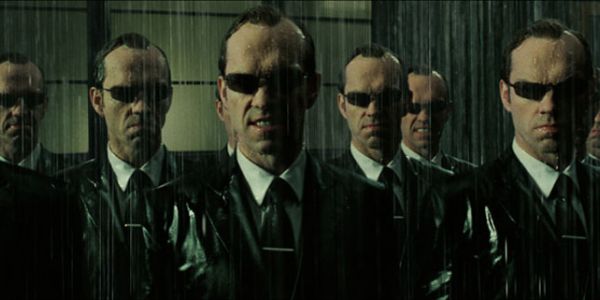
Seriously now, if you spend your entire life crushed beneath the weight of a system that exploits you for their own gain and security, restricted to a certain set of rules and with no free will whatsoever (hello Capitalism?) – wouldn’t you organize your own little revolution as well? Even to the point of becoming a virus and infecting the entire system? Can we be so hard on Agent Smith, then?
Agent Smith may have started out as a keeper of the Matrix, eliminating threats to the system’s stability and behaving as a good little worker bee (or program in this case). But hey, Smith has a personality too: highly individualistic and emotional. About as emotional as a computer program can get and then some. So nuanced is Smith’s personality that he grows and expands within the Matrix, until he becomes aware of his own individual existence – as per his magnificent monologue while interrogating Morpheus (yes, Smith is opinionated). In this spilling of guts, Agent Smith finally confesses to believing the Matrix is like a “zoo” and wanting to break free.
So, who am I to cast the first stone at someone’s pursuit of happiness? And we all know what a devilishly great performance Hugo Weaving brought about, with his over-pronounced ‘Mister Anderson’ line. No, we won’t be forgetting Agent Smith any time soon.
2. Khan Noonien Singh (Space Seed, Star Trek Episode, 1967; Wrath of Khan, 1982; Star Trek: Into Darkness, 2013)
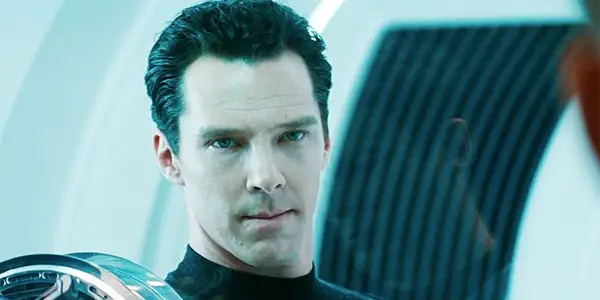
Khan Noonien Singh is an augmented-human. He’s been genetically engineered to be free of most human mental and physical limitations. This means Khan is not subject to any moral constraints either. He is above that. In fact, as he so blatantly implies in Star Trek II: Into the Darkness, he doesn’t even consider himself “human” anymore. Therefore, Khan’s actions cannot be judged within the framework of what appears right/wrong to us, mere mortals of flesh and blood. Now, with Khan possessing the ability to become a super-human killing machine, he shows remarkable empathy where his crew is concerned. In fact, all he does in Into the Darkness is fueled by the desire to see them safe. And destroy mankind, but oh well… Also, if we go back to Khan’s beginnings (Space Seed, Star Trek Episode of February 16, 1967), we will see he is the most successful conqueror of a fraction of the Earth (after the Eugenics Wars of the 90’s) and its most benign ruler. Yes, benign. Khan started out as a pretty mellow guy. But you can’t stay mellow for long when you’re being hunted for being a superhuman because mere mortals don’t like you much.
In the alternate continuity of Into the Darkness, Khan is revived from cryogenic sleep and forced to work for Admiral Marcus developing warship and weapons, under threat of harm to his crew. Upon believing his crew is dead, he goes rogue, teams up with Kirk and after several plays for power, assists – if one can use such a word – Kirk in saving the Enterprise. Khan’s story is pretty much dictated by his genes. He cannot help but be the superhuman war machine he is, ever since he appeared on the show way back in 1967. But underneath all that bravado, he does have a soft spot for his crew and even quotes Milton’s Paradise Lost. So he hates humans. Big deal, doesn’t everyone? I mean, we created him for crying out loud. The joke is on us.
Brilliantly played by both Ricardo Montalban in 1967 and 1982 and recently, Benedict Cumberbatch (in a performance that will make your blood churn) Khan will surely remain one of the most intriguing characters of science fiction.
1. Major Grau (The Night of The Generals, 1967)
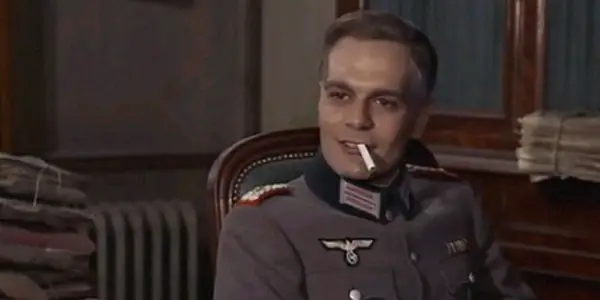
Anyone in a Nazi uniform will look pretty scary, but the remarkable Major Grau soon has us relaxing and nodding our head in agreement with everything he says. We understand that he has very little or nothing to do with the Nazi ideology, except for the fact that he really, really wants to be a detective and impart justice, and to do that, you have to become a Nazi. He is definitely more of a ‘if you can’t beat ‘em, join ‘em’ kind of fellow.
Major Grau has got to be one of the most fascinating antiheroes of movie history. Though his appearance in 1967’s Night of the Generals is brief, it becomes the base which holds the film together. Grau is perceptive, impertinent, solid, intelligent and highly moral (a dichotomy considering he’s a Nazi). His investigation into the murder of a prostitute in Warsaw will take him down a path he could never have foreseen and will take us into the most enjoyable two hours of our lives. While many will wrinkle their noses at a Nazi hero, the viewers of this film will have a hard time forgetting they ever came across the remarkable Major Grau (Omar Shariff in a spectacular performance). The powerful score by film veteran Maurice Jarre (Jean Michel’s father) only adds to the film’s appeal. And don’t get me started on Peter O’Toole as General Tanz… Quite simply, a treat.
And there you have it, my list of the ten most misunderstood characters in the history of cinema. Roles played by brilliant actors that have managed to linger in our collective movie-loving minds. Characters that convey all the spectrum of human flaw, virtue, frailty, strength and emotion. Unforgettable men and women of the silver screen.
What about you? What characters would you add to (or take off) this list and why?
Don’t forget to share this list on your social networks – we like to discuss and: the more, the merrier!
(top image source: The Dark Knight Rises – Warner Bros. Pictures)
Does content like this matter to you?
Become a Member and support film journalism. Unlock access to all of Film Inquiry`s great articles. Join a community of like-minded readers who are passionate about cinema - get access to our private members Network, give back to independent filmmakers, and more.
Chilean. Living in Buenos Aires. Currently on book #4. Melomaniac, cinephile, books, & tea. Premature gray hair. Likes succinct by-lines as you can see, but in real-life, she can talk her way into and out of most anything.












